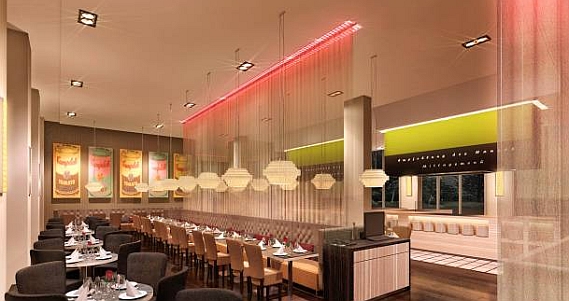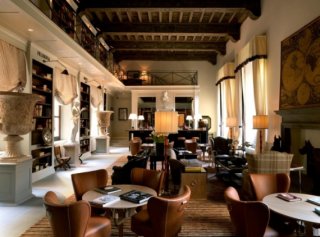
News & Stories
Metz. French SIIC Foncière des Murs is looking at new opportunities outside its home market after sealing the acquisition last month of a European hotel portfolio in partnership with insurance group Predica.
Munich. The words tumbled from his lips, but the essence is clear in the end: "You can create nice things without much money," says 42-year old Andreas Neudahm, who works as an interior designer in Wuppertal, Germany. For many years, international hotel chains and constructors have hired the young German for their projects. His talent for creating stylish chain hotels despite a limited budget is in high demand. He preferably applies lots of colours and light, but he also thinks in an unconventional way. Andreas Neudahm constantly challenges himself and everything else. Several years ago, contracts commissioned by Ramada opened the doors for him. Next came international names like Citadines, Ascott and Queens. He knows the design requirements of Starwood, Marriott, Sol Meliá and Accor. Currently, he is in close connection with David Fattal, Fattal Group and Leonardo Hotels, respectively. "When furnishing a hotel, design is not the problem," he says sarcastically, "it's the designers' expectations."
Berlin. The Hamburg based project developer ECE is set to develop a 4-star superior hotel at the future site of Berlin Brandenburg International Airport with Steigenberger Hotels AG as operator. The move marks ECE's first venture into hotel development.
Andermatt. On the construction site of the new golf course of Andermatt's mega resort of Samih Sawiris in Switzerland, archaeologists have discovered Roman coins and metal objects from the middle Ages, among others. However, the construction work is continuing. The first apartments have already been sold.
Munich. The Hotel Real Estate Working Committee of the German Association of Independent Real Estate and Housing Companies is set to convene at the Commercial Real Estate Trade Fair, Expo Real in Munich. The agenda includes possible changes from the IFRS.
Paris. This week, Accor signed a memorandum of understanding for a major 367 million € real estate transaction in Europe involving the sale of 48 hotels. Representing a total of 6,300 rooms, the hotels operate under the Novotel, Suite Novotel, Ibis and Etap Hotel brands. Yesterday, Accor also published it half-year revenues 2010: Recovery is confirmed.
Stuttgart. Definitions and foundations of the various shared ownership real estate models have been described several times in the past. Practical experience shows that hotel and real estate specialists understand the basic “vacation ownership” concepts, such as timesharing, fractionals and private residence clubs, etc.. Yet, even though almost every international hotel group is active in this area, the operational and calculation approaches remain uncharted territory for most specialists. Joachim Mezger, Regional Director Central and Eastern Europe of Interval International, Stuttgart describes the interesting context. Part 1 of his guest article today extensively talks about the fundamentals of business administration.
Munich. On August 31, the application deadline ends for the “Hotel Property Award" and the "Hotel Innovation Award" of the year 2010. The awards will be presented at the “hotelforum" on October 6 in Munich. This time, the focus is on "sustainability and ecology".
Berlin. "The German Property Federation will increasingly represent the interests of investors and owners of hotel real estate as well in future", announces ZIA President Dr. Andreas Mattner. A new platform has been founded.
Baden-Baden. For the public, the Buehlerhoehe in Baden-Baden has been sold surprisingly fast; however, there has been a potential buyer for a longer time in the background. "Price and point of time were right," says the representative of the current owner, the family of the SAP founder Dietmar Hopp. Soon, the headline-making prestige property will belong to a circle of patrons.


